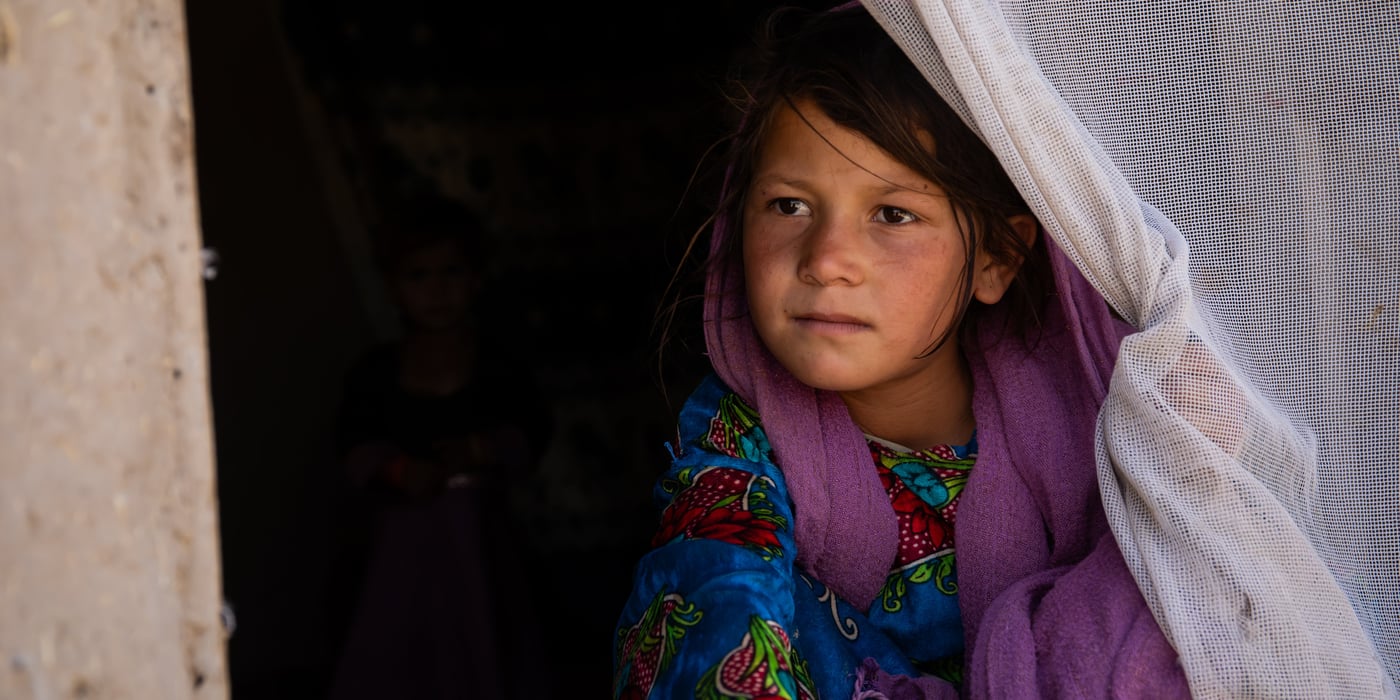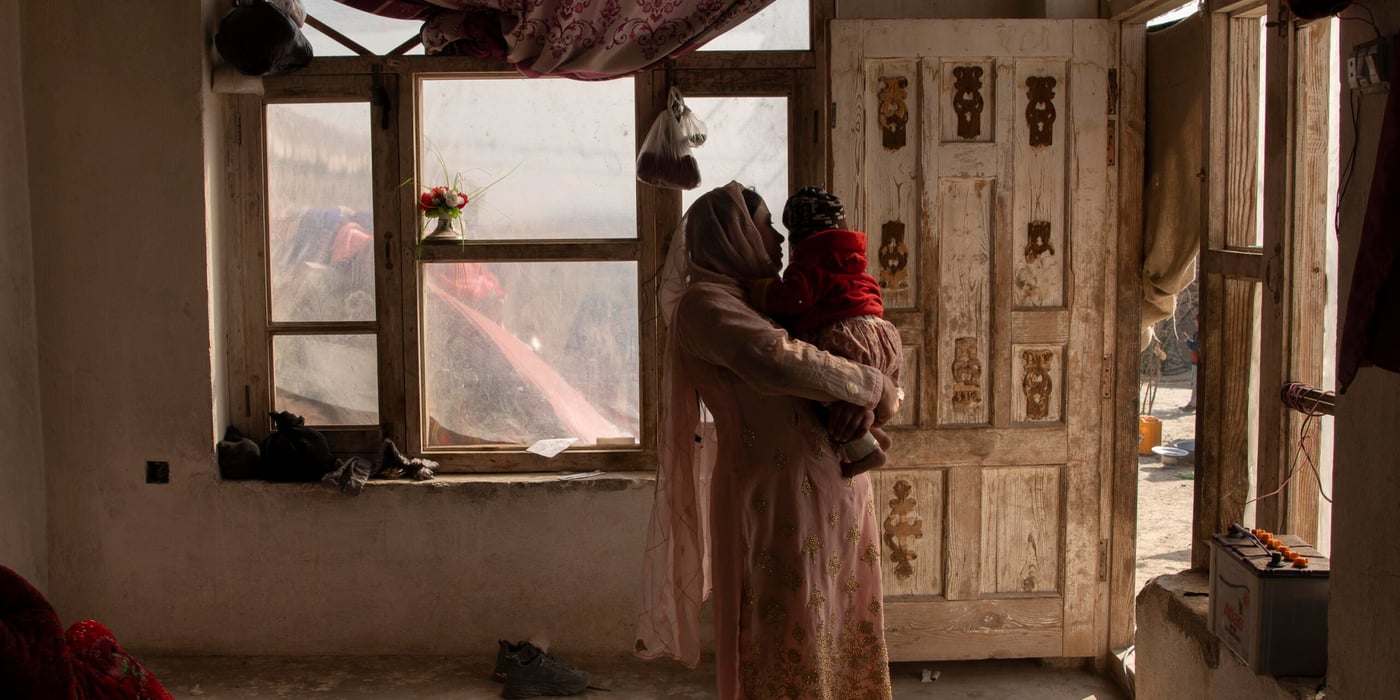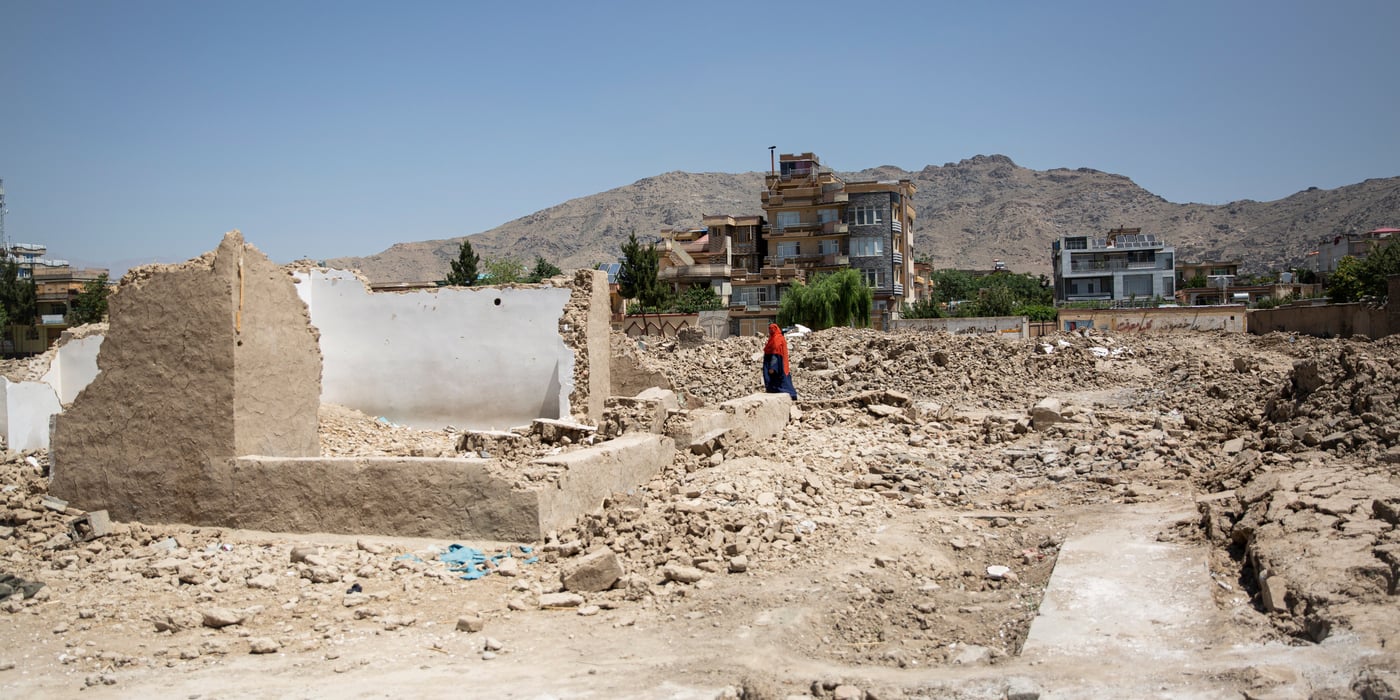“There were thirteen of us, including children,” he said. “It took two days to come to Afghanistan ”.
Noor and his family were one of thousands to seek refuge in neighboring Khost province, Afghanistan, with many settling in Gulan refugee camp. Although Noor hoped he would be able to return home before winter, ongoing fighting has meant they have now lived in the refugee camp for six months.
A maths and physics teacher with ten years experience in his native Pakistan, Noor jumped at the opportunity to begin teaching again when NRC commenced its "Education in Emergencies" program at Gulan Camp.
“For one month there was nothing for the children to do. Then NRC came and started hiring teachers, registering students, and preparing curriculum. Very quickly there were tents built for temporary classrooms and now in time for winter they have just finished proper schoolrooms,” explained Noor.
The new brick schoolrooms, finished just this week, will soon be equipped with bukharis, a traditional heater commonly used to keep rooms warm during the freezing cold Afghan winters. Students will also soon be provided with warm winter coats to help them through the cold months ahead.
Noor is one of 80 teachers recruited by NRC from within Gulan Camp to provide ongoing education for over 2,000 refugee children. “For me, I am also glad to have some income and a job and continue teaching, which I love,” said Noor.
In one of the newly constructed classrooms, one of Noor’s star students, Ismaeil, confidently read from his Urdu textbook for the rest of the class. When asked what he wanted to achieve in the future, Ismaeil replied “I would like to be a scientist…I will be a scientist”.
In a time of a refugee crisis, making sure children continue their schooling can often take a lower priority. But Noor noted that in addition to the educational benefits refugee children received from an ongoing education, the learning environment and leadership of the teachers provided a relief from the stresses of displacement and other important developmental opportunities.
Giving the refugee children ongoing education would make sure “they develop into good people in the future,” Noor said. “We make sure they learn how to treat themselves and others with respect”. The children living at Gulan Camp have also been given the opportunity to mix with children from the local Khost community, including during organized football matches. The NRC education team has also ensured teachers and students are linked with other services provided in the camp, such as health and hygiene promotion, polio vaccinations and mine awareness.
NRC’s Education in Emergencies project in Khost is made possible by funding from the Norwegian Ministry of Foreign Affairs and UNICEF.




